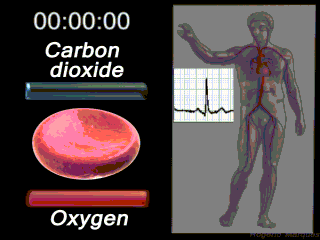The average human body carries ten times more bacterial cells than human cells.

It’s funny how we compulsively wash our hands, spray our countertops and grimace when someone sneezes near us—in fact, we do everything we can to avoid unnecessary encounters with the germ world. The truth of the matter is that each and every one of us is a walking petri dish! All the bacteria living inside you would fill a half-gallon jug or 10 times more bacterial cells in your body than human cells, according to Carolyn Bohach, a microbiologist at the University of Idaho. Don’t worry, though. Most of these bacteria are helpful; in fact, we couldn’t survive without them.
For one thing, bacteria produce chemicals that help us harness energy and nutrients from our food. Germ-free rodents have to consume nearly a third more calories than normal rodents to maintain their body weight, and when the same animals were later given a dose of bacteria, their body fat levels spiked, even if they didn’t eat any more than they had before. The gut bacteria is also very important to maintaining immunity. (image It’s funny how we compulsively wash our hands, spray our countertops and grimace when someone sneezes near us—in fact, we do everything we can to avoid unnecessary encounters with the germ world. The truth of the matter is that each and every one of us is a walking petri dish! All the bacteria living inside you would fill a half-gallon jug or 10 times more bacterial cells in your body than human cells, according to Carolyn Bohach, a microbiologist at the University of Idaho. Don’t worry, though. Most of these bacteria are helpful; in fact, we couldn’t survive without them.
For one thing, bacteria produce chemicals that help us harness energy and nutrients from our food. Germ-free rodents have to consume nearly a third more calories than normal rodents to maintain their body weight, and when the same animals were later given a dose of bacteria, their body fat levels spiked, even if they didn’t eat any more than they had before. The gut bacteria is also very important to maintaining immunity. image source -(http://www.itsokaytobesmart.com/post/56354633860/bacterial-communication-biofilm-myxococcus)
It can take a photon 40,000 years to travel from the core of the sun to its surface, but only 8 minutes to travel the rest of the way to Earth.

Photon travels, on average, a particular distance d before being briefly absorbed and released by an atom, which scatters it in a new random direction. From the core to the sun’s surface (696,000 kilometers) where it can escape into space, a photon needs to make a huge number of drunken jumps. The calculation is a little tricky, but the conclusion is that a photon takes between many thousands and many millions of years to drunkenly wander to the surface of the Sun. In a way, the light that reaches us today is energy produced maybe millions of years ago. Amazing!
The average person walks the equivalent of five times around the world in a lifetime

The average moderately active person take aound 7,500 step/day. If you maintain that daily average and live until 80 years of age, you’ll have walked about 216,262,500 steps in your lifetime. Doing the math; the average person with the average stride living until 80 will walk a distance of around 110,000 miles. Which is the equivalent of walking about 5 times around the Earth, right on the equator.
An individual blood cell takes about 60 seconds to make a complete circuit of the body

You have about 5 litres of blood in your body (at least most people do) and the average heart pumps about 70 ml of blood out with each beat. Also, a healthy heart beats around 70 times a minute. So, if you multiply the amount of blood that the heart can pump by the number of beats in a minute, you actually get about 4.9 litres of blood, which is almost your whole body’s worth of blood. In just a minute, the hearts pumps the entire blood volume around your body.
The known universe is made up of 50,000,000,000 galaxies. There are between 100,000,000,000 and 1,000,000,000,000 stars in a normal galaxy. In the Milky Way alone there might be as many 100 billion Earth-like planets. Still think you’re alone?

source http://www.zmescience.com
Bro, great article. Most of them I didn't know before!
Thanks dude!
Great
thanks, good article...
elakiri
Great Content.
elamai
helpful post
Oh my goodness is that real 👀
Great post
Good
gread